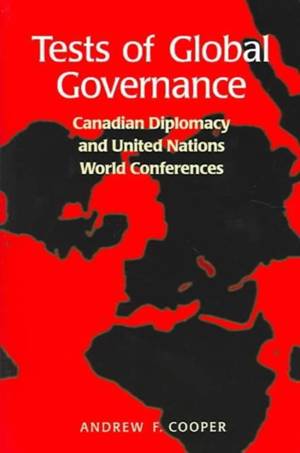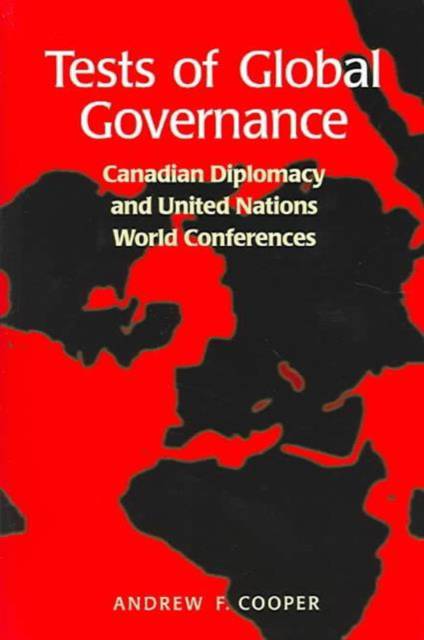
- Retrait gratuit dans votre magasin Club
- 7.000.000 titres dans notre catalogue
- Payer en toute sécurité
- Toujours un magasin près de chez vous
- Retrait gratuit dans votre magasin Club
- 7.000.0000 titres dans notre catalogue
- Payer en toute sécurité
- Toujours un magasin près de chez vous
Tests of Global Governance
Canadian Diplomacy and United Nations World Conferences
Andrew F. Cooper
Livre broché
39,95 €
+ 79 points
Description
A detailed examination of UN World Conferences with respect to the interface between diplomatic method and new forms of global governance is provided in this book. Because of the complex dynamics involved in large international conferences, this book highlights a number of important theoretical debates central to the study of international relations.
Spécifications
Parties prenantes
- Auteur(s) :
- Editeur:
Contenu
- Nombre de pages :
- 270
Caractéristiques
- EAN:
- 9789280810967
- Date de parution :
- 01-06-04
- Format:
- Livre broché
- Dimensions :
- 156 mm x 235 mm
- Poids :
- 476 g

Les avis
Nous publions uniquement les avis qui respectent les conditions requises. Consultez nos conditions pour les avis.






